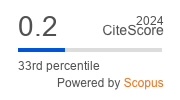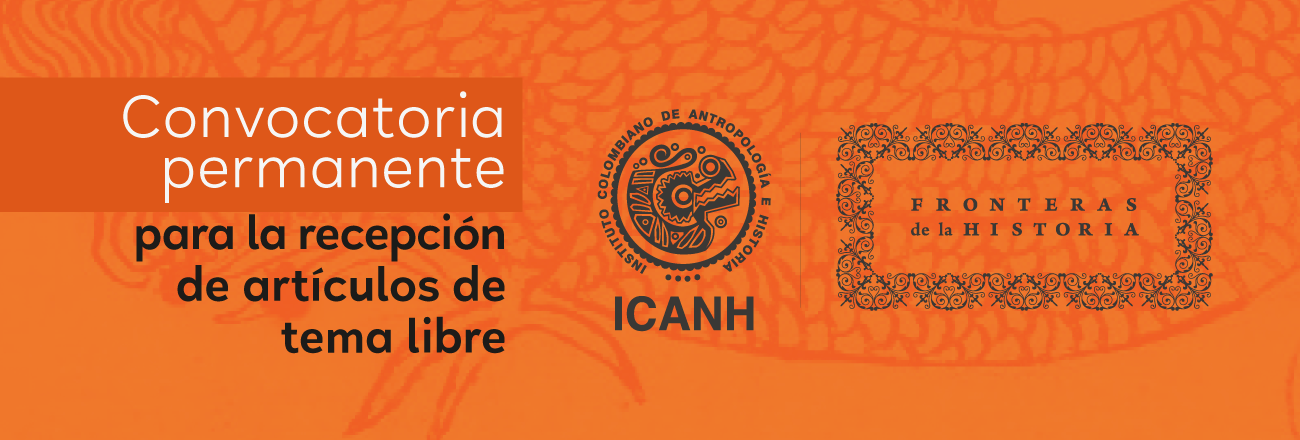Relationship between resilience, psychological well-being and family satisfaction in university students attended in university psychological care services
Abstract
The objective of the research was to analyze the relationship between resilience, psychological well-being and family satisfaction in university students who have attended the psychological care service of a Chilean university, with the understanding that these variables may be protective factors of mental health and that they favor the adaptive and functional development of individuals. The research has a correlational scope and has a non-experimental cross-sectional design. A total of 123 students participated in the study. The instruments used were the Connor-Davidson Resilience Scale, the Ryff Psychological Well-Being Scale and the Olson and Wilson Family Satisfaction Scale. The results show significant correlations between the three core variables of the study, being particularly strong between psychological well-being and resilience, but with a more moderate strength between these variables and family satisfaction. It is concluded that it would be possible to intervene in the strengthening of resilience as a factor promoting student psychological well-being in the population using psychological services, taking as a reference the functionality and satisfaction with the family.
Downloads
References
Ahluwalia, M., Shillington, K.J. e Irwin, J.D. (2023): «The relationship between resilience and mental health of undergraduate students: A scoping review», Journal of American College Health [Preprint]. Available at: https://doi.org/10.1080/07448481.2023.2252925.
Akbayram, H.T. y Keten, H.S. (2024): «The Relationship between Religion, Spirituality, Psychological Well-Being, Psychological Resilience, Life Satisfaction of Medical Students in the Gaziantep, Turkey», Journal of Religion and Health, 63(4), pp. 2847–2859. Available at: https://doi.org/10.1007/s10943-024-02027-2.
Allan, J.F., McKenna, J. y Dominey, S. (2014) «Degrees of resilience: profiling psychological resilience and prospective academic achievement in university inductees», British Journal of Guidance & Counselling, 42(1), pp. 9-25. Available at: https://doi.org/10.1080/03069885.2013.793784.
Al-Zain, A.O. y Abdulsalam, S. (2022): «Impact of grit, resilience, and stress levels on burnout and well-being of dental students», Journal of Dental Education, 86(4), pp. 443–455. Available at: https://doi.org/10.1002/jdd.12819.
Antúnez, Z. y Vinet, E.V. (2013): «Problemas de salud mental en estudiantes de una universidad regional chilena», Revista médica de Chile, 141(2), pp. 209-216. Available at: https://doi.org/10.4067/S0034-98872013000200010.
Barrera-Hererra, A., San Martín, Y., y Universidad de La Frontera (2021): «Prevalencia de Sintomatología de Salud Mental y Hábitos de Salud en una Muestra de Universitarios Chilenos», Psykhe (Santiago), 30(1). Available at: https://doi.org/10.7764/psykhe.2019.21813.
Bore, M. et al. (2016): «Predictors of psychological distress and well-being in a sample of Australian undergraduate students», Higher Education Research and Development, 35(5), pp. 869–880. Available at: https://doi.org/10.1080/07294360.2016.1138452.
Camacho-Villa, M.A. et al. (2023): «Cross-Sectional Analysis of Colombian University Students’ Perceptions of Mental Health during the COVID-19 Pandemic: Repercussions on Academic Achievement», Healthcare, 11(14), p. 2024. Available at: https://doi.org/10.3390/healthcare11142024.
Canales, A. y De Los Ríos, D. (2009): «Retención de estudiantes vulnerables en la educación universitaria», Calidad en la Educación, (30), p. 50. Available at: https://doi.org/10.31619/caledu.n30.173.
Castañeda-García, P.J. et al. (2022): «Análisis cuantitativo de resiliencia y apoyo social en estudiantes universitarios de primero y último curso de Psicología», Revista iberoamericana de psicología, 15(1), pp. 79–90. Available at: https://doi.org/10.33881/2027-1786.rip.15108.
Chow, K.M. et al. (2018): «Resilience and well-being of university nursing students in Hong Kong: A cross-sectional study», BMC Medical Education, 18(1). Available at: https://doi.org/10.1186/s12909-018-1119-0.
Condori Meléndez, H. et al. (2021): «Efectos de la pandemia por coronavirus en la educación superior universitaria», Revista Conrado, 17(82), pp. 286–292. Available at: http://scielo.sld.cu/scielo.php?script=sci_arttext&pid=S1990-86442021000500286.
Connor, K.M. y Davidson, J.R.T. (2003): «Development of a new resilience scale: The Connor-Davidson Resilience Scale (CD-RISC)», Depression and Anxiety, 18(2), pp. 76–82. Available at: https://doi.org/10.1002/da.10113.
Cuijpers, P. et al. (2019): «The World Health Organization World Mental Health International College Student initiative: An overview», International Journal of Methods in Psychiatric Research, 28(2), p. e1761. Available at: https://doi.org/10.1002/mpr.1761.
Cyrulnik, B. (2003): El murmullo de los fantasmas: volver a la vida después de un trauma. Gedisa.
De Souza-Martins, M. y Figueroa-Ángel, M.X. (2023): «Psychological factors of university students and quality of life: A systematic review pre-pandemic», Interdisciplinaria, 40(1), pp. 25-41. Available at: https://doi.org/10.16888/interd.2023.40.1.2.
Dong, S. et al. (2024): «Enhancing psychological well-being in college students: the mediating role of perceived social support and resilience in coping styles», BMC Psychology, 12(1). Available at: https://doi.org/10.1186/s40359-024-01902-7.
Duarte, F. y Jiménez-Molina, Á. (2020): «Psychological distress during the COVID-19 epidemic in Chile: the role of economic uncertainty». preprint. Psychiatry and Clinical Psychology. Available at: https://doi.org/10.1101/2020.09.27.20202648.
Eisenberg, D. (2019): «Countering the Troubling Increase in Mental Health Symptoms Among U.S. College Students», Journal of Adolescent Health, 65(5), pp. 573–574. Available at: https://doi.org/10.1016/j.jadohealth.2019.08.003.
Eisenberg, D., Lipson, S.K. y Posselt, J. (2016): «Promoting Resilience, Retention, and Mental Health», New Directions for Student Services, 2016(156), pp. 87–95. Available at: https://doi.org/10.1002/ss.20194.
Flores Galaz, M.M. y Cortés Ayala, M.L. (2022): «Resiliencia: Factores Predictores en Adolescentes», Acta de investigación psicológica, 12(3), pp. 115–128. Available at: https://doi.org/10.22201/fpsi.20074719e.2022.3.467.
Forés, A. y Grané, J. (2008) «La resiliencia: Crecer desde la adversidad» 1st ed. Barcelona: Plataforma Editorial SL.
Forés, A. y Grané, J. (2012): La resiliencia en entornos socioeducativos. Narcea Ediciones.
Fullerton, D.J., Zhang, L.M. and Kleitman, S. (2021): «An integrative process model of resilience in an academic context: Resilience resources, coping strategies, and positive adaptation», PLoS ONE, 16(2 February). Available at: https://doi.org/10.1371/journal.pone.0246000.
García-Rivera, B.R. et al. (2021): «Influence of covid-19 pandemic uncertainty in negative emotional states and resilience as mediators against suicide ideation, drug addiction and alcoholism», International Journal of Environmental Research and Public Health, 18(24). Available at: https://doi.org/10.3390/ijerph182412891.
Goldman-Mellor, S.J. et al. (2014) «Suicide Attempt in Young People: A Signal for Long-term Health Care and Social Needs», JAMA Psychiatry, 71(2), p. 119. Available at: https://doi.org/10.1001/jamapsychiatry.2013.2803.
Grané, J. y Forés, A. (2019): Los patitos feos y los cisnes negros: resiliencia y neurociencia. Plataforma Editorial. Available at: www.plataformaeditorial.com.
Graner, K.M. y Cerqueira, A.T.A.R. (2019): «Integrative review: Psychological distress among university students and correlated factors», Ciencia e Saude Coletiva, 24(4), pp. 1327-1346. Available at: https://doi.org/10.1590/1413-81232018244.09692017.
Grevenstein, D. et al. (2019): «Better family relationships-higher well-being: The connection between relationship quality and health related resources», Mental Health and Prevention, 14. Available at: https://doi.org/10.1016/j.mph.2019.200160.
Hafshoh, H.- y Saleh, A.Y. (2021): «The Effects of Family Functioning Dimensions on the Subjective Well-being among High School Students», Psychological Research on Urban Society, 4(1), p. 3. Available at: https://doi.org/10.7454/proust.v4i1.63.
Huarcaya-Victoria, J. (2020): «Consideraciones sobre la salud mental en la pandemia de COVID-19», Revista Peruana de Medicina Experimental y Salud Pública, 37(2), pp. 327-34. Available at: https://doi.org/10.17843/rpmesp.2020.372.5419.
Huppert, F.A. (2009): «Psychological Well‐being: Evidence Regarding its Causes and Consequences», Applied Psychology: Health and Well-Being, 1(2), pp. 137–164. Available at: https://doi.org/10.1111/j.1758-0854.2009.01008.x.
Jackman, P.C. et al. (2022): «Mental health and psychological wellbeing in the early stages of doctoral study: a systematic review», European Journal of Higher Education, 12(3), pp. 293-313. Available at: https://doi.org/10.1080/21568235.2021.1939752.
Kerr, D.C.R. y Capaldi, D.M. (2011): «Young men’s intimate partner violence and relationship functioning: long-term outcomes associated with suicide attempt and aggression in adolescence», Psychological Medicine, 41(4), pp. 759–769. Available at: https://doi.org/10.1017/S0033291710001182.
Lagarda Lagarda, A.E., Vera Noriega, J.Á. y Tánori Quintana, J. (2022): «Satisfacción con la vida y sus correlatos socio-personales en adolescentes de secundarias públicos de Sonora, México», Revista de Psicología, 40(1), pp. 9-35. Available at: https://doi.org/10.18800/psico.202201.001.
Langer, Á.I. et al. (2022): «Social and Economic Factors Associated With Subthreshold and Major Depressive Episode in University Students During the COVID-19 Pandemic», Frontiers in Public Health, 10, p. 893483. Available at: https://doi.org/10.3389/fpubh.2022.893483.
Mac-Ginty, S., Jiménez-Molina, Á. y Martínez, V. (2021): «Impacto de la pandemia por COVID-19 en la salud mental de estudiantes universitarios en Chile», Revista Chilena de Psiquiatría y Neurología de La Infancia y La Adolescencia, 32(1), pp. 23-37. Available at: https://tinyurl.com/4a2k5b9a.
Marín Medina, C.E., Jorquera Silva, Y.X. y La Banca Ledesma, H.G. (2023): «Relación del bienestar psicológico con las estrategias de afrontamiento y la satisfacción familiar en universitarios durante la pandemia», Revista de Psicología, 41(2), pp. 823-858. Available at: https://doi.org/10.18800/psico.202302.008.
Martínez, P. et al. (2021): «Salud mental en estudiantes de educación superior en Chile: una revisión de alcance con meta-análisis», Terapia psicológica, 39(3), pp. 405-426. Available at: https://doi.org/10.4067/S0718-48082021000300405.
Masten, A.S. (2014): «Global Perspectives on Resilience in Children and Youth», Child Development, 85(1), pp. 6-20. Available at: https://doi.org/10.1111/cdev.12205.
Moya-Vergara, R. et al. (2022): «Prevalence and Risk Factors Associated with Mental Health in Adolescents from Northern Chile in the Context of the COVID-19 Pandemic», Journal of Clinical Medicine, 12(1), p. 269. Available at: https://doi.org/10.3390/jcm12010269.
Niederkrotenthaler, T. et al. (2014): «Future risk of labour market marginalization in young suicide attempters--a population-based prospective cohort study», International Journal of Epidemiology, 43(5), pp. 1520-1530. Available at: https://doi.org/10.1093/ije/dyu155.
Olson, D. (2000): «Circumplex Model of Marital and Family Systems», Journal of Family Therapy, 22(2), pp. 144-167. Available at: https://doi.org/10.1111/1467-6427.00144.
Olson, D. (2011): «FACES IV and the Circumplex Model: Validation Study», Journal of Marital and Family Therapy, 37(1), pp. 64-80. Available at: https://doi.org/10.1111/j.1752-0606.2009.00175.x.
Pailhé, A., Panico, L. y Solaz, A. (2022): «Children’s well-being and intra-household family relationships during the first COVID-19 lockdown in France», Journal of Family Research, 34(1), pp. 249–280. Available at: https://doi.org/10.20377/jfr-718.
Pedrini, L. et al. (2022): «`Adolescents’ mental health and maladaptive behaviors before the Covid-19 pandemic and 1-year after: analysis of trajectories over time and associated factors», Child and Adolescent Psychiatry and Mental Health, 16(1), p. 42. Available at: https://doi.org/10.1186/s13034-022-00474-x.
Pérez-Villalobos, C. et al. (2012): «Problemas de salud mental en alumnos universitarios de primer año de Concepción, Chile», Anales de Psicología, 28(3), pp. 797-804. Available at: https://doi.org/10.6018/analesps.28.3.156071.
Pierce, M. et al. (2020): «Mental health before and during the COVID-19 pandemic: a longitudinal probability sample survey of the UK population», The Lancet Psychiatry, 7(10), pp. 883–892. Available at: https://doi.org/10.1016/S2215-0366(20)30308-4.
Rayani, A.M., Alodhailah, A.M. y Alreshidi, S.M. (2024): «A cross-sectional study of resilience and well-being among nursing students in Saudi Arabia», SAGE Open Medicine, 12. Available at: https://doi.org/10.1177/20503121241245224.
Ríos-Risquez, M.I. et al. (2018): «Connections between academic burnout, resilience, and psychological well-being in nursing students: A longitudinal study», Journal of Advanced Nursing, 74(12), pp. 2777-2784. Available at: https://doi.org/10.1111/jan.13794.
Rodríguez-Fernández, A. et al. (2016): «Bienestar subjetivo en la adolescencia: el papel de la resiliencia, el autoconcepto y el apoyo social percibido», Suma Psicológica, 23(1), pp. 60-69. Available at: https://doi.org/10.1016/j.sumpsi.2016.02.002.
Ruiz-Román, C., Juárez Pérez-Cea, J. y Molina Cuesta, L. (2020): «Evolución y nuevas perspectivas del concepto de resiliencia: de lo individual a los contextos y relaciones socioeducativas», Educatio Siglo XXI, 38(2 Jul-Oct), pp. 213–232. Available at: https://doi.org/10.6018/educatio.432981.
Ryff, C.D. (1989): «Happiness is everything, or is it? Explorations on the meaning of psychological well-being», Journal of Personality and Social Psychology, 57(6), pp. 1069–1081. Available at: https://doi.org/10.1037/0022-3514.57.6.1069.
Ryff, C.D. y Keyes, C.L.M. (1995): «The structure of psychological well-being revisited», Journal of Personality and Social Psychology, 69(4), pp. 719-727. Available at: https://doi.org/10.1037/0022-3514.69.4.719.
Ryff, C.D. y Singer, B.H. (2008): «Know Thyself and Become What You Are: A Eudaimonic Approach to Psychological Well-Being», Journal of Happiness Studies, 9(1), pp. 13-39. Available at: https://doi.org/10.1007/s10902-006-9019-0.
Sagkal Midilli, T., Kalkim, A. y Uslu, B. (2024): «Relationship Between Health Anxiety and Psychological Resilience Among Nursing Students and Predictors of Psychological Resilience in the Last Period of the COVID-19 Pandemic», Disaster Medicine and Public Health Preparedness, 18. Available at: https://doi.org/10.1017/dmp.2024.71.
Salgado, S. et al. (2022): «Relationships between Individual and Social Resources, Anxiety and Depression in the Early Lockdown Stage by the COVID-19 in Chile», Behavioral Sciences, 12(10), p. 357. Available at: https://doi.org/10.3390/bs12100357.
Sánchez-Aragón, R. (2020): «Bienestar subjetivo: el papel de la rumia, optimismo, resiliencia y capacidad de recibir apoyo», Ciencias Psicológicas, 14(2). Available at: https://doi.org/10.22235/cp.v14i2.2222.
Satici, S.A. (2016): «Psychological vulnerability, resilience, and subjective well-being: The mediating role of hope», Personality and Individual Differences, 102, pp. 68–73. Available at: https://doi.org/10.1016/j.paid.2016.06.057.
Valdés, J.M. et al. (2022): «Mental Health and Related Factors Among Undergraduate Students During SARS-CoV-2 Pandemic: A Cross-Sectional Study», Frontiers in Psychiatry, 13, p. 833263. Available at: https://doi.org/10.3389/fpsyt.2022.833263.
Wang, C. et al. (2020): «A longitudinal study on the mental health of general population during the COVID-19 epidemic in China», Brain, Behavior, and Immunity, 87, pp. 40–48. Available at: https://doi.org/10.1016/j.bbi.2020.04.028.
Wattick, R.A., Hagedorn, R.L. y Olfert, M.D. (2023): «Impact of resilience on college student mental health during COVID-19», Journal of American College Health, 71(7), pp. 2184–2191. Available at: https://doi.org/10.1080/07448481.2021.1965145.
Zarei, S. y Fooladvand, K. (2022): «Family functioning and life satisfaction among female university students during COVID-19 outbreak: the mediating role of hope and resilience», BMC Women’s Health, 22(1). Available at: https://doi.org/10.1186/s12905-022-02103-3.
Copyright (c) 2025 Viviana Tartakowsky Pezoa, María Eugenia Araneda Bengoechea, Claudio Marín Medina

This work is licensed under a Creative Commons Attribution-NonCommercial-ShareAlike 4.0 International License.

Esta obra está bajo licencia internacional Creative Commons Reconocimiento-NoComercial-CompartirIgual 4.0.









_18.09_.00_1.png)


















